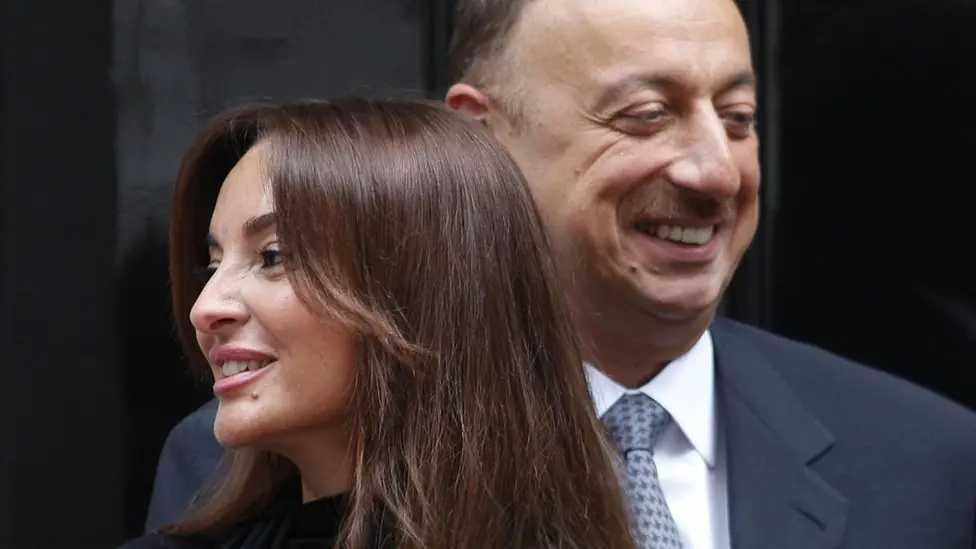After almost a year of plummeting relations, Azerbaijan and Russia seem like they have ended their very public beef.
At a meeting in Dushanbe earlier this week, Russian President Vladimir Putin apologised, on camera, to Azerbaijani President Ilham Aliyev for the deadly Azerbaijan Airlines (AZAL) plane crash in December 2024 — the incident that had set off the chain of escalating tit-for-tat actions between Moscow and Baku.
In a delicately-worded admission of guilt, Putin acknowledged that the plane had been mistakenly struck by Russian air-defence missiles, pledged that all necessary compensation would be paid, and promised that those responsible would be held accountable.
Almost immediately, the respective media apparatuses of Russia and Azerbaijan that had been at war with each other for ten months changed their tunes.
So what did this all mean?
Did Russia get humbled by its smaller neighbour to the south? Did Putin bite the bullet and humiliate himself because he values good relations with Azerbaijan more than maintaining the bizarre stance of never apologising? Was this whole thing stage managed from the beginning, arranged in a secret meeting between Moscow and Baku? Was Russia ready to invade Azerbaijan, secure a land corridor to Armenia, depose Prime Minister Nikol Pashinyan, and set up a pliant puppet regime in Baku so Russia could hoard Azerbaijan’s energy resources? Was Azerbaijan making secret deals with Ukraine to launch a second front on Russia’s southern border?
These are all real theories I saw put forth over the past year. Some may have some elements of truth, while others are far-fetched (Azerbaijan was never going to invade Russia).
Ultimately, it is exceedingly difficult to make definitive conclusions about what truly goes on in the closed political systems of Russia and Azerbaijan.
Nonetheless, there are a few observations that I think one can draw from this whole affair.
- Neither Russia nor Azerbaijan had any interest in escalating the war of words into an actual conflict. The two countries share a border, there is a considerable Azerbaijani diaspora in Russia, there are credible reports that Azerbaijan is helping launder Russian fossil fuels, and countless other reasons why a shooting war was always unlikely.
- Optics aside, Aliyev was probably actually angry about the plane crash, the deaths of two Azerbaijanis in Russian police custody, and arguably most importantly, Russia’s blatant disrespect of Azerbaijan. Azerbaijan’s importance on the global stage has without a doubt increased in recent years, and this has certainly buoyed Aliyev’s ego. Unlike years past, Aliyev views himself more as Putin’s equal, rather than a subordinate, and wants to be treated as such by Moscow.
- On this note, Azerbaijan is also more willing to assert itself, including testing the boundaries with Russia. And despite some threats from propagandists like Vladimir Solovyov (who calls on London and Washington to be nuked every other day), Azerbaijan appears to have come out of this spat largely unscathed, having drawn a red line with Russia.
- For its part, the fact that Putin apologised at all is significant, and is an implicit sign that Russia is aware it does not hold the same sway in what it calls its near abroad as it once did. Russia has been unquestionably weakened by its setbacks in the full-scale war in Ukraine, and it can no longer fully call the shots in its relations with its neighbours. Ultimately, despite his hemming and hawing, Putin did back down, something he almost certainly would not have done before February 2022.
In the end, I think Azerbaijan clearly won this round, but the end goal was never to rupture relations, but instead to redefine them. Russia has been humbled in the short term, but reports by Russian nationalist media outlets on the rapprochement indicate that some bitterness remains. Should the balance of power shift again in the future, the Kremlin may seek to address its grievances. But for now, stability is likely what most interests both Baku and Moscow.






